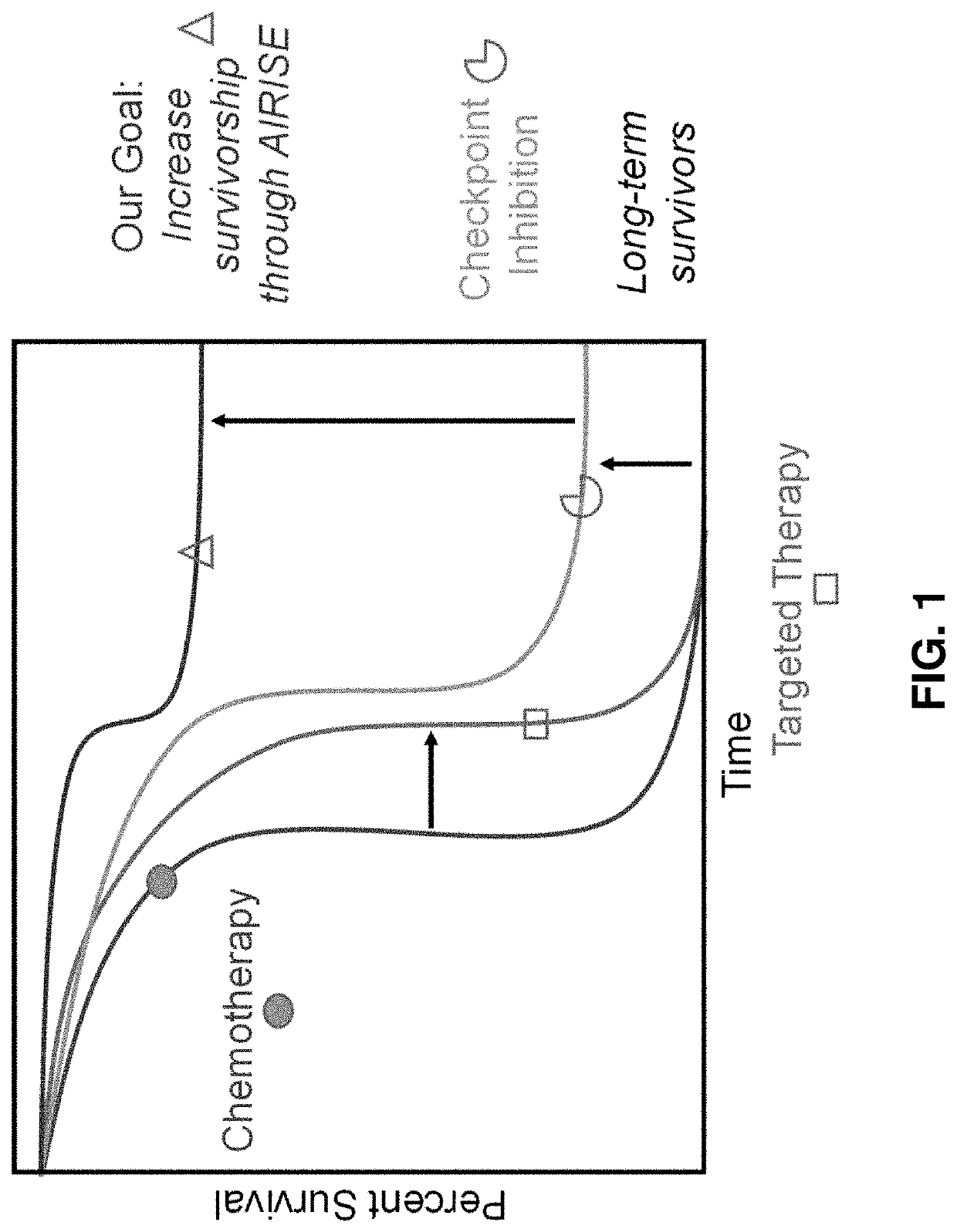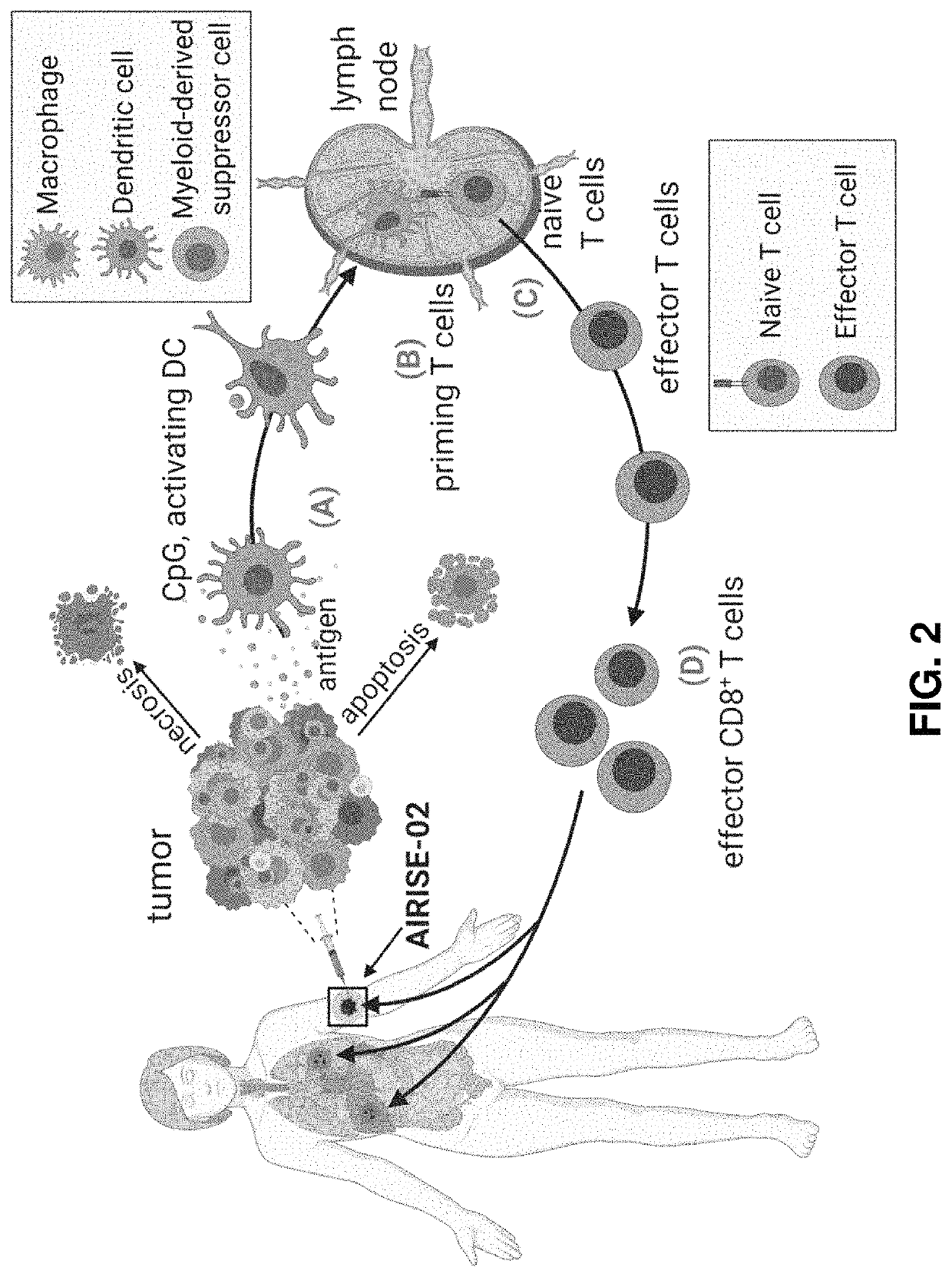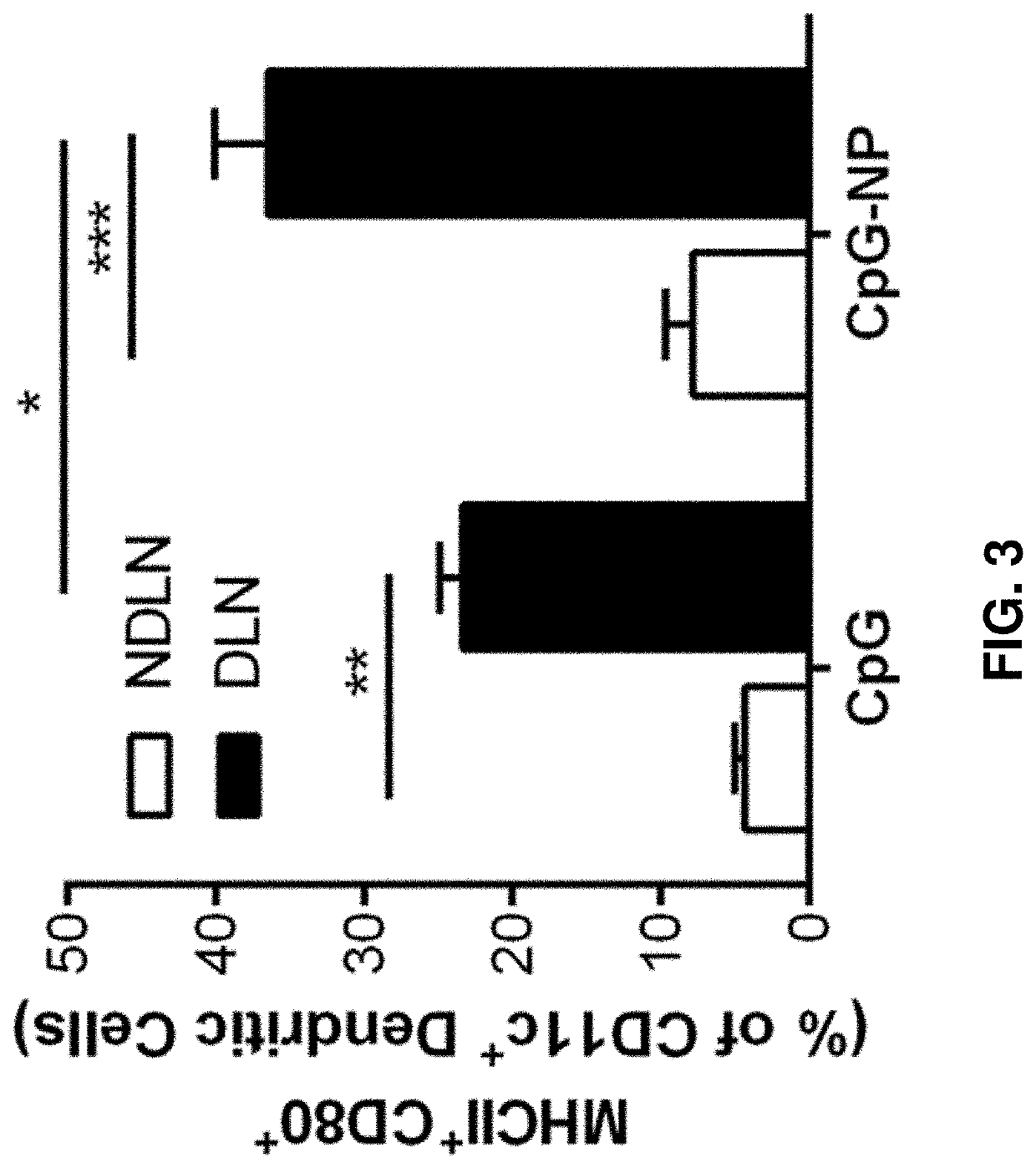Immunotherapeutic constructs and methods of their use
a technology of immunotherapeutic constructs and constructs, applied in the direction of peptides, non-active genetic ingredients, drug compositions, etc., can solve the problems of low antitumor t cell count or ineffective antitumor t cell count, and difficulty in developing personalized vaccines for each patient,
- Summary
- Abstract
- Description
- Claims
- Application Information
AI Technical Summary
Benefits of technology
Problems solved by technology
Method used
Image
Examples
example 1
Utilizing Nanotechnology to Engineer the Tumor Into a Depot for Cancer Vaccination that Primes Systemic Antitumor Immunity
[0337]Immune checkpoint inhibitors (ICIs), such as inhibitors for PD-L1 / PD-1, CTLA-4, etc., have shown impressive outcome in clinics (Sharon et al., Chin J Cancer, 33(9):434-44, 2014; Buchbinder & Desai, Am J Clin Oncol, 39(1):98-106, 2016). Immune checkpoint inhibitors release the brake of patients' own immune system to fight cancer, offering immunological memory and resulting in long-lasting immune response even after treatment stops. ICIs can thus provide more durable response in late-stage cancer than chemotherapy and targeted therapy can, as shown in FIG. 1. However, the treatment only works in a subset of patients (˜10-40%) (Ribas, Update Cancer Therapeutics, 2(3):133-139, 2007; Topalian et al., N Engl J Med, 366(26): p. 2443-54, 2012). Lack of response is typically due to the absence of pre-existing antitumor immunity (e.g., effector (CD8+) T cells against...
example 2
Immunotherapeutic Constructs (Such as NPs) can Also be Loaded with Two Types of siRNAs Simultaneously without Losing Efficacy
[0378]In addition to co-delivery of siRNA and CpG, the herein-described immunotherapeutic constructs can also co-deliver multiple siRNAs. For example, FIG. 13 shows that when NP (prepared essentially as described in Example 1) was loaded with two individual siRNA against HER2 or STAT3, specific knockdown of each protein was achieved. FIG. 13 also shows that when both siRNAs were loaded on the same NP vial (see T-siHER2 / siSTAT3-NP), a similar knockdown of the two proteins was achieved as when they were loaded on two separate NP vials (see T-siHER2-NP+T-siSTAT3-NP). As another example, FIG. 36 shows the effectiveness of NP loaded with siCXCR4, siSTAT3, and CpG (siSTAT3 / siCXCR4-CpG-NP) in enhancing the efficacy of immune checkpoint inhibitors in melanoma model.
[0379]This illustrates the versatility of the herein described immunotherapeutic constructs particles at...
example 3
Cell-Type Specific / Targeted Immunotherapeutic Constructs
[0381]siRNA holds great potential since any gene can be modulated precisely and effectively. The immunotherapeutic constructs (AIRISE) can tackle different immunosuppressive pathways or different immune cell population by utilizing antibodies (or other targeting agents) on our nanoparticles for specific delivery. Immunotherapeutic constructs, including the NPs provided herein, can be conjugated with targeting agent(s) for targeted-delivery to specific cell population(s), such as specific cells in a tumor. Some antibodies such as anti-PD-L1 antibody may serve as both targeting agents and modulators of immunosuppressive pathways.
[0382]FIGS. 14A-14C provide examples of such targeting of NPs. NP conjugated with cetuximab (anti-EGFR antibody) show preferential uptake to EGFR+ cells over low EGFR cells (FIGS. 14A-14B). Likewise, NP conjugated with trastuzumab (anti-HER2 antibody) shows preferential uptake to HER2+ cells over low HER2...
PUM
| Property | Measurement | Unit |
|---|---|---|
| size | aaaaa | aaaaa |
| hydrodynamic size | aaaaa | aaaaa |
| hydrodynamic size | aaaaa | aaaaa |
Abstract
Description
Claims
Application Information
 Login to View More
Login to View More - R&D
- Intellectual Property
- Life Sciences
- Materials
- Tech Scout
- Unparalleled Data Quality
- Higher Quality Content
- 60% Fewer Hallucinations
Browse by: Latest US Patents, China's latest patents, Technical Efficacy Thesaurus, Application Domain, Technology Topic, Popular Technical Reports.
© 2025 PatSnap. All rights reserved.Legal|Privacy policy|Modern Slavery Act Transparency Statement|Sitemap|About US| Contact US: help@patsnap.com



